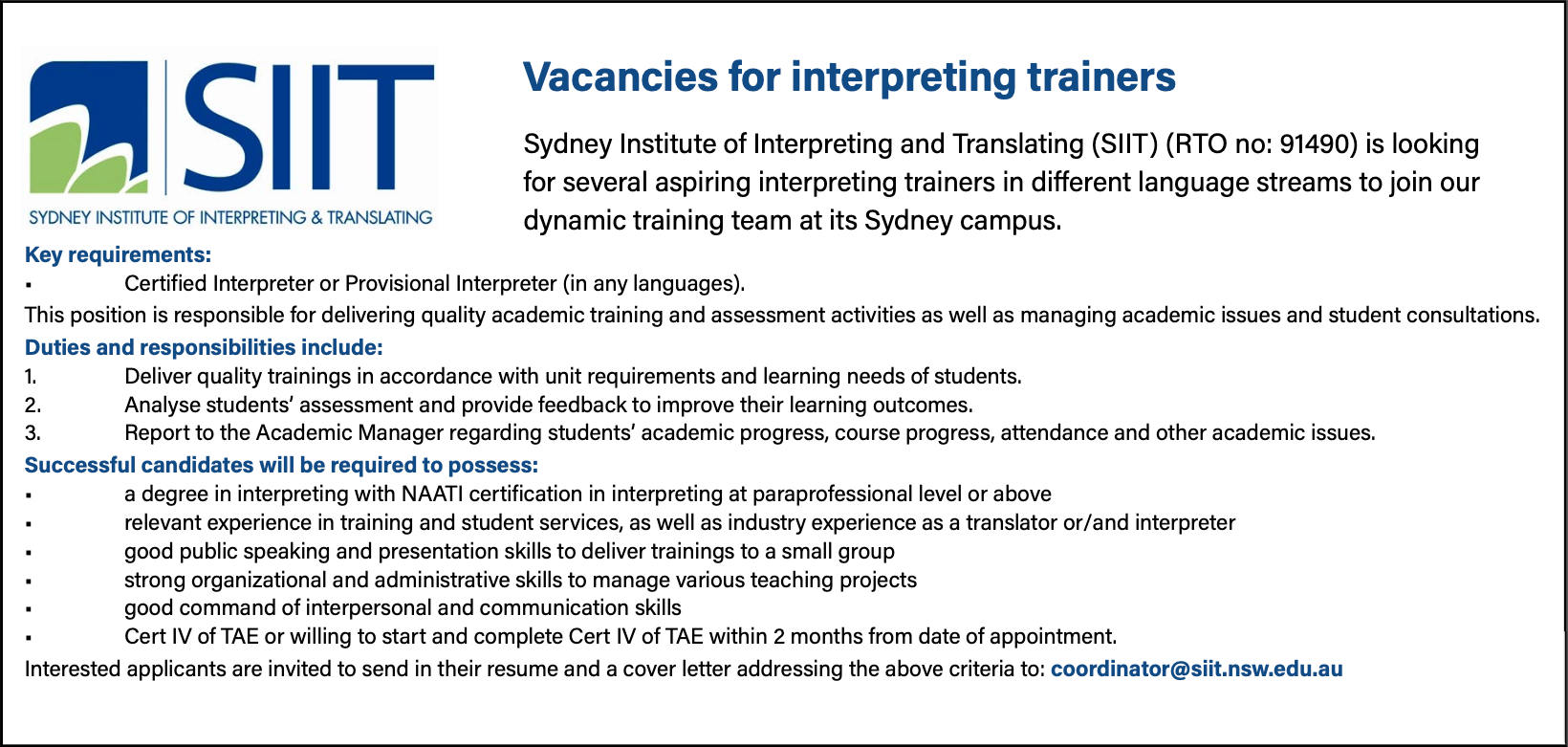23–25 November, University of New South Wales (Kensington Campus), Sydney, on Bedegal country
There were almost 500 registrations for AUSIT’s 36th Annual National Conference and related events. In Touch’s Editorial Committee and the conference’s Organising Committee, made up of NSW Branch members, have put together this overview of what was, yet again, AUSIT’s biggest conference to date.

DAY 1
On an unusually cool, grey Thursday afternoon, the conference was opened by AUSIT National President J. Angelo Berbotto and Professor Colin Grant, Deputy Vice-Chancellor of UNSW.
The ensuing two-and-a-half-day program of workshops, presentations, roundtables and more delved into the crucial role that T/Is play in facilitating communication and understanding across diverse cultures, communities and industries. It provided the opportunity to reflect on essential next steps in the national space, where important policies and protocols relating to translation and interpreting have been published but not fully implemented.
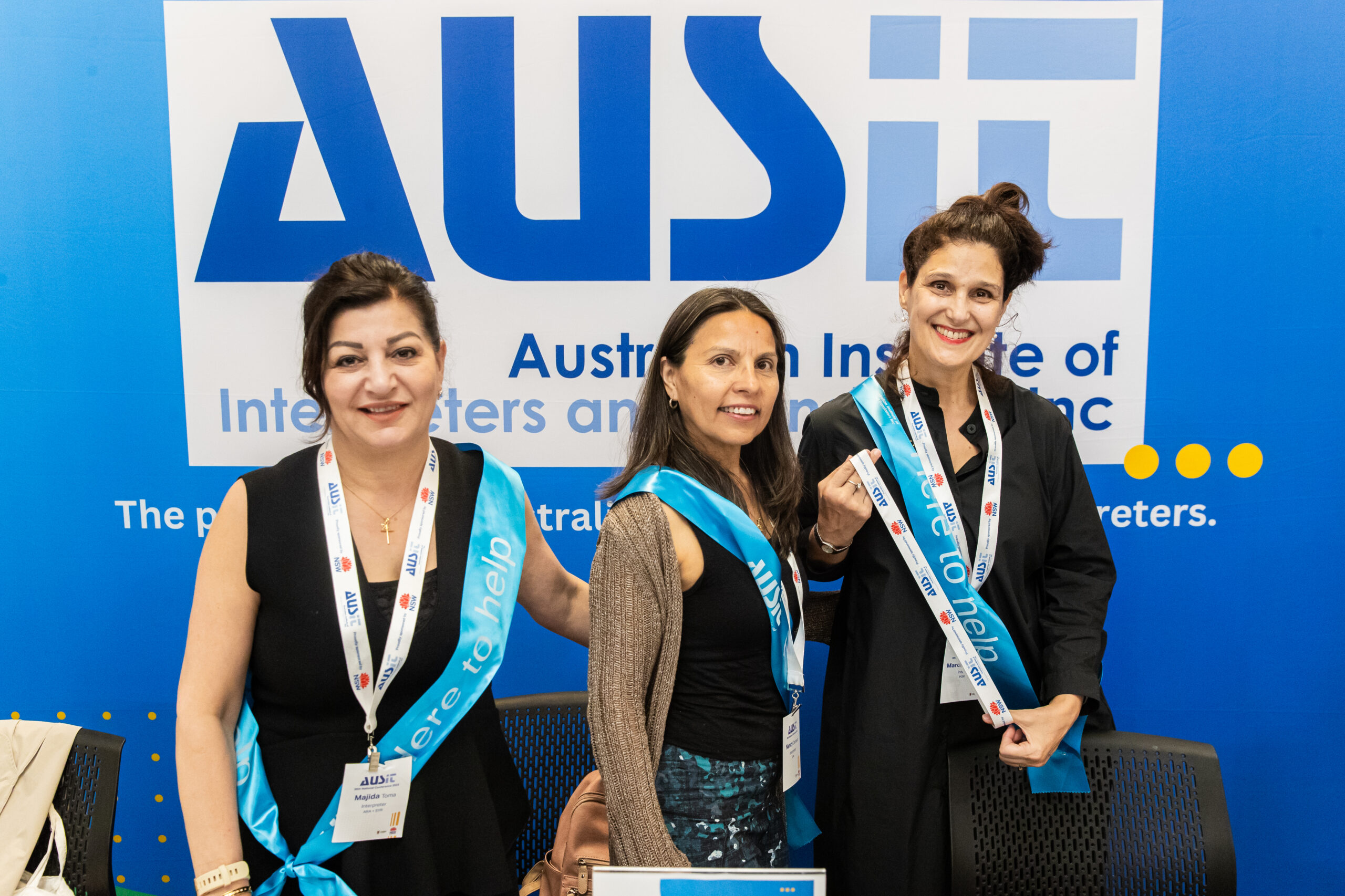
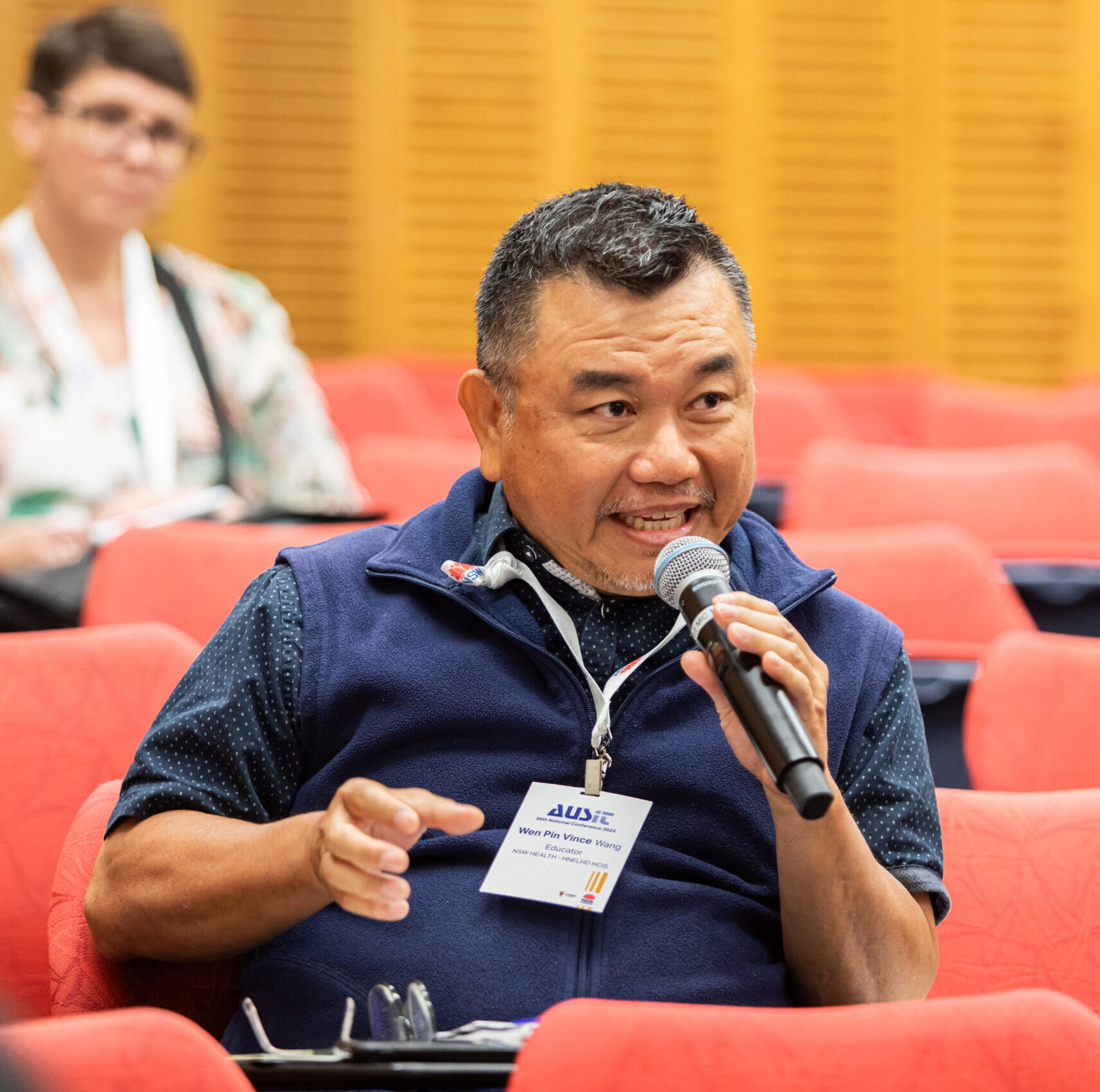
Keynote speakers
Tish Bruce is the Executive Director, Health and Social Policy Branch at the NSW Ministry of Health. Her plenary ‘Interpreting in Health Care Settings’ highlighted how NSW Health’s ‘Standard Procedures for Working with Health Care Interpreters’ policy, as a mandatory directive, underscores the significance of interpreters in such settings more fully than the guidelines offered in other states and territories.
The Honourable Justice François Kunc sits in the Equity Division of the Supreme Court of New South Wales. Justice Kunc, speaking on ‘Working with Interpreters in Courts and Tribunals’, noted that we are at a critical point in our journey to ensure that adherence to the Recommended National Standards for working is these settings becomes an integral and unremarkable part of the judicial process.
Some of Friday’s sessions
Steve Elkanovich of the Australian Criminal Intelligence Commission presented on ‘Special Requirements for Linguists Working in Law Enforcement and Intelligence Settings’. He emphasised the need for specific training in this area where cross-cultural communication, legal interpreting and translation overlap – especially in regards to role boundaries when participating in investigations (see his article, pages 14–16).
Michael Broughton, addressing ‘Adjusting translation pedagogies to a world of AI’, explained a novel project-based multimodal translation process he’s been using in his translation classes.
The session by Beatrice Cortis titled ‘Game Changers: The Rise and Impact of Translators in Australia’s Video Game Localisation Landscape’ made a welcome change from more weighty topics, and gave some insight into this new area in which many translators are now finding employment.
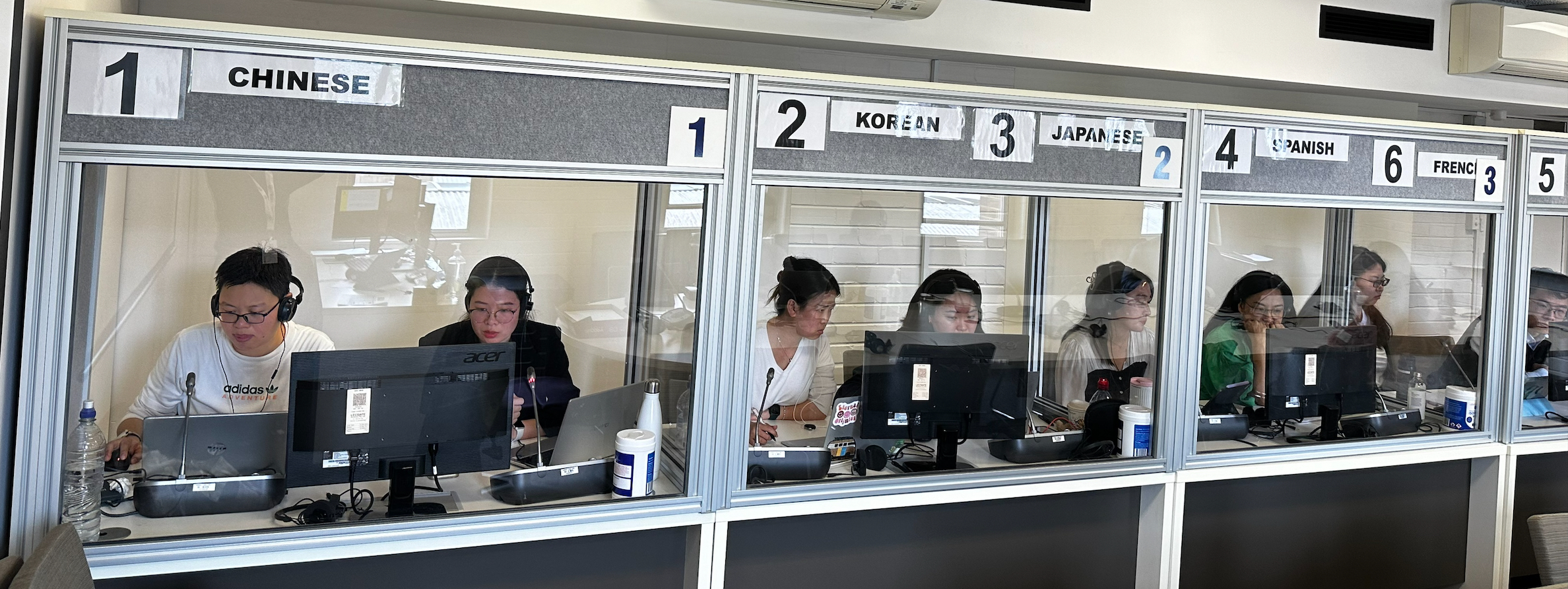
For a third year, AUSIT’s Educational Affiliate institutions provided simultaneous interpreting – this time in Chinese, French, Korean, Lao and Spanish.
Welcome Cocktails and Gala Dinner
While many attendees enjoyed catching up with old friends and making new ones over drinks and canapés on Thursday evening, the Gala Dinner was the main event. The food was great, and a spectacular floorshow – by Indian dancers Raj and Jennifer plus the Colombian Cultural Folkloric Organisation – followed. Comments included ‘I’ve never seen anything like it!’ (meant in a good way!) and ‘I feel like I’m at the Oscars!’


And spirits remained high, with the dance floor being put to good use right until the end of the evening.
During dinner, the AUSIT Translation Competition 2023 winners were announced (see page 5) and the AUSIT Excellence Awards 2023 were presented (see pages 8–9).

DAY 2
Keynote speaker
Associate Professor Erika Gonzalez (T&I, RMIT University) is AUSIT’s Immediate Past President (2019–22). Speaking on ‘Community Translation Protocols and Translator Tools’, she focused on AUSIT’s engagement with the national taskforce to improve both the translation of messages of public significance, and tools that have been developed for translation to this end.
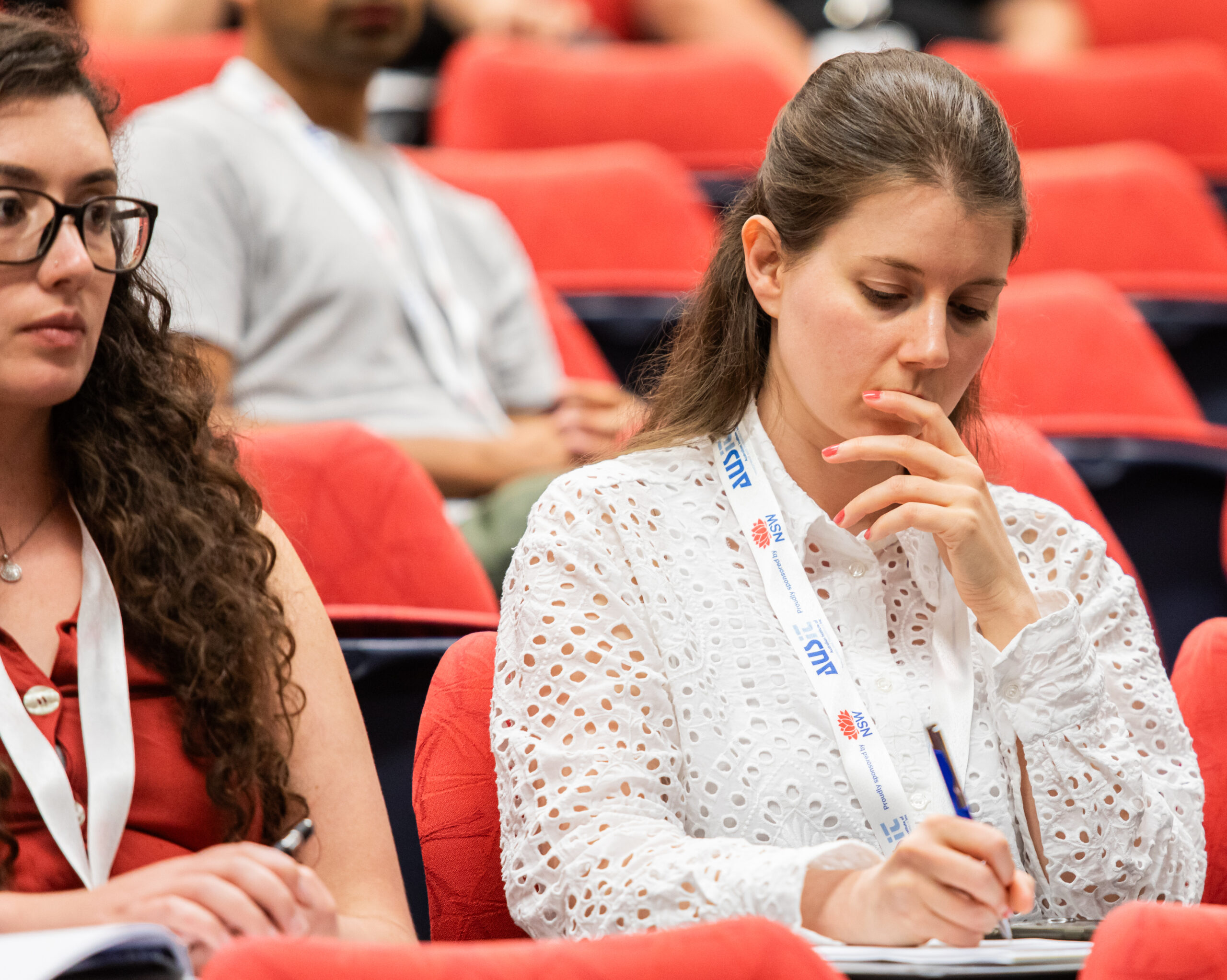
Some of Saturday’s sessions
Erika’s address was followed by a UNSW-led roundtable, ‘Translation Today – Protocols, Tools & Technology’. Moderated by Professor Ludmila Stern, the panel considered specific challenges and tools – including AI – from the perspective of the translation professional. Some very current, fascinating and even controversial topics were discussed. Ludmila’s colleagues Sean Cheng and Jia Zhang were brilliant and had a great deal to say about technology, while Mustapha Taibi spoke briefly but interestingly about using ‘community reviewers’, and Alisa Tian shared some fascinating insights on the subtitling work that she does for for SBS.
In a dynamic co-presentation with Miranda Lai on ‘Transcription and translation of indistinct audio used as evidence in criminal trials’, Helen Fraser described what she calls ‘priming’ by demonstrating to all present that our ears can trick us into hearing different things, depending on what contextual clues are provided, which poses risks when using forensic transcripts in court.
A valuable resource
The most coveted giveaway at the conference (and winner of a prestigious AUSIT Excellence Award, see pages 8–9) was the Northern Territory Aboriginal Interpreter Service’s Plain English Health Dictionary. The 150 copies generously donated by the AIS ran out early on Saturday, disappointing the many attendees who hadn’t already snapped one up. The AIS assure us that this valuable resource is being reprinted and will soon be available for purchase, while a digital copy can be downloaded for free here.
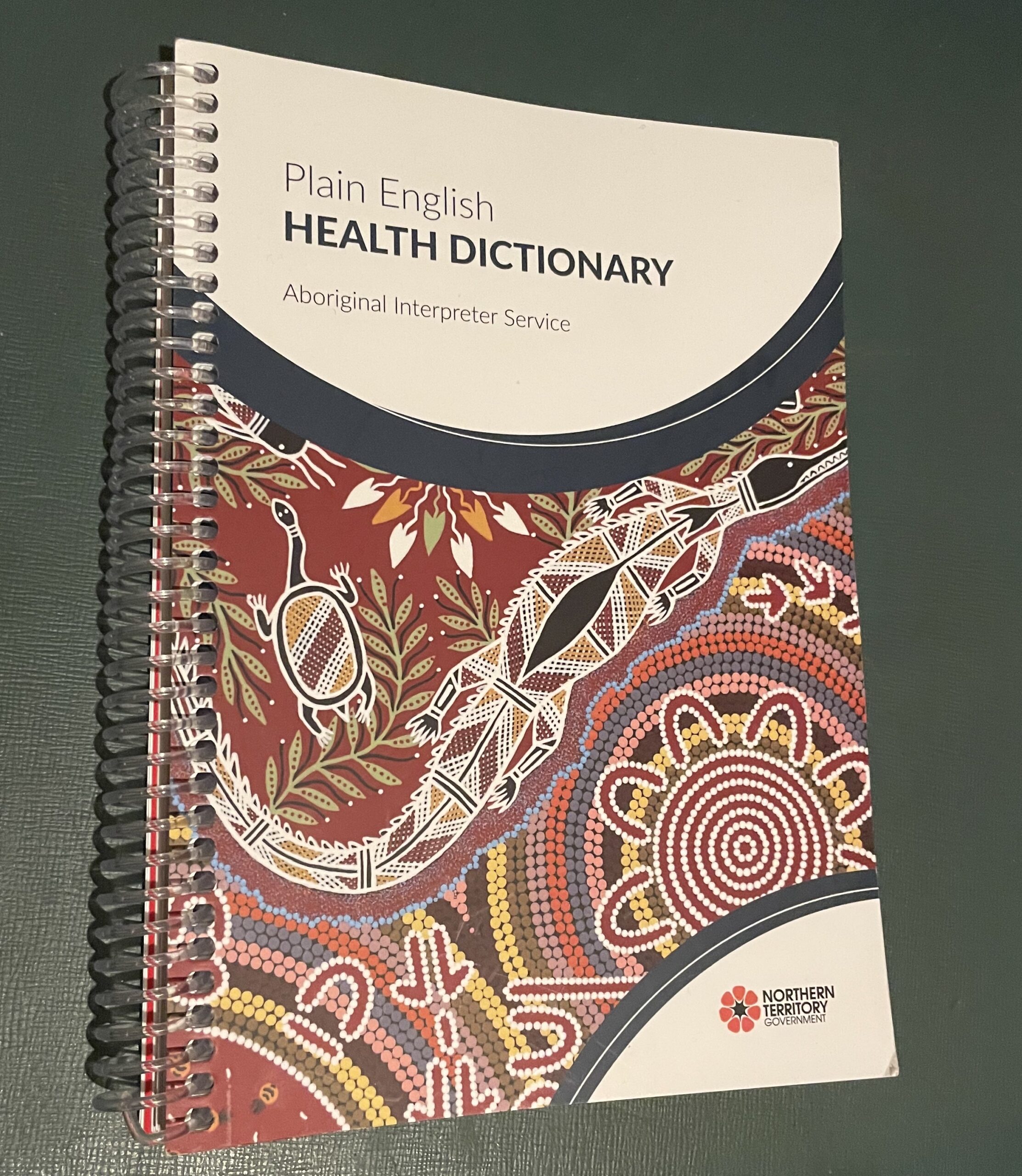
Jill Blewett Memorial Lecture 2023
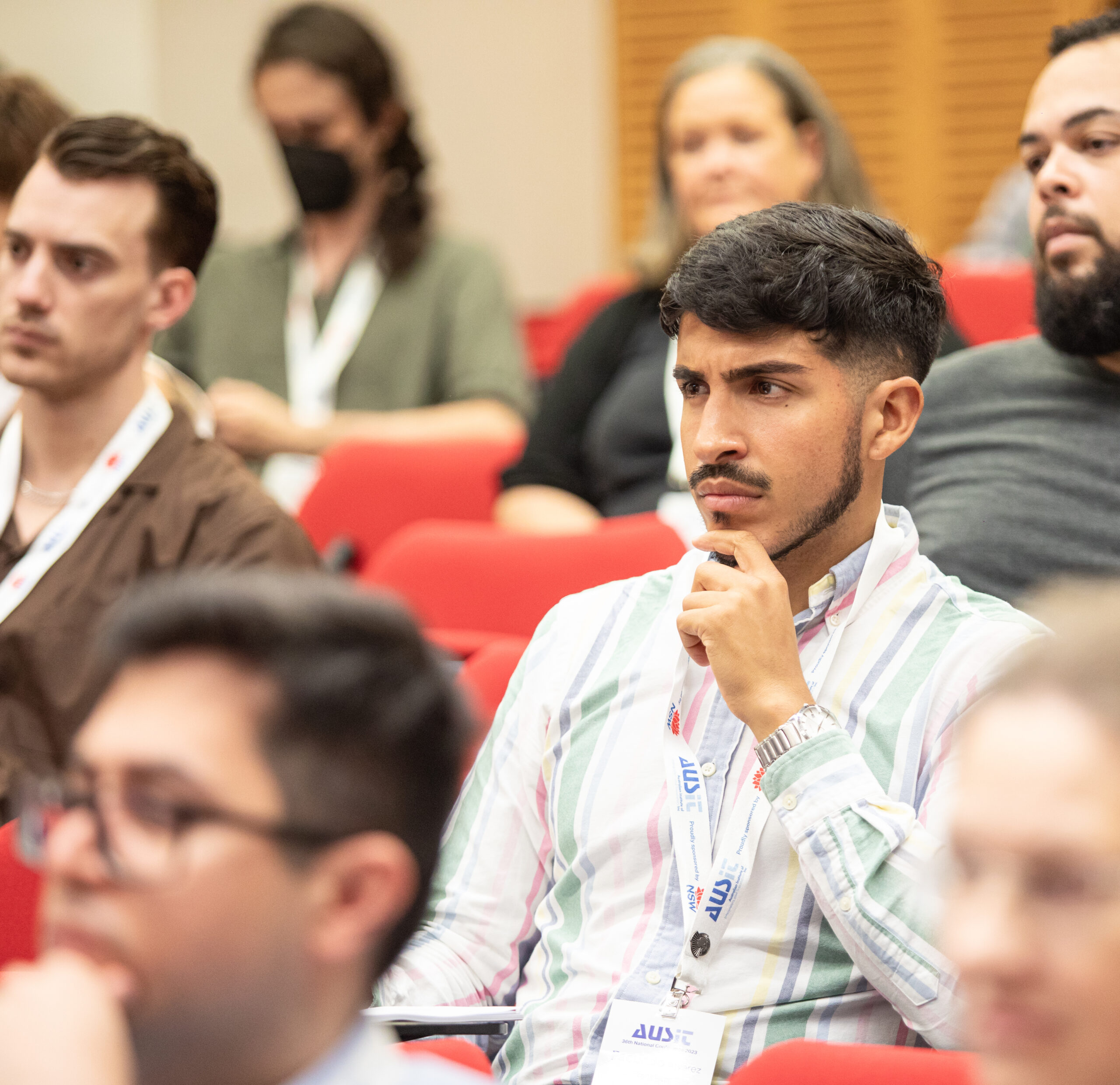
This year’s JBML was given by lawyer Rob Aurbach, a highly experienced regulator and a consultant in making complex governmental systems work better … and a great speaker! Addressing the sustainability of the T&I profession, and referencing recent Queensland-based research into health care interpreting, Rob gave an overview of our industry and how it operates, state by state, from the perspective of an outsider, then suggested some key areas where change could be made – for example, he advocated for interpreting to be considered a ‘critical service’ by both state and federal governments. It’s great that we are gaining spokespeople in stakeholder industries (in this case the legal profession) who feel passionate about our work, and are helping us create both the connections that we desperately need to improve our conditions and an awareness of our profession outside our own industry.
The end of the event … and the inauguration of a new tradition
There was time for plenty of socialising between conference sessions, but National President J. Angelo Berbotto helped the attendees keep tabs on start times by vigourously wielding the brand new AUSIT Conference Bell – a large, elegant brass handbell which will be engraved and handed over from one organising committee to the next from now on.
During the Closing Ceremony Angelo ceremonially handed the bell, engraved with ‘AUSIT – 36th National Conference – Sydney’, over to Karine Bachelier, Chair of the Victorian Branch, which will organise the 2024 Conference.

Thank you for making it happen!
On behalf of all attendees, a huge ‘Thank you!’ to the Organising Committee (OC): Silvia Martinez and J. Angelo Berbotto (co-Chairs), Camille Lapierre, Hania Geras, Juliana Frantz, Louis Ndagijimana, Marcia de Almeida, Marion Gevers, Rebeca Paredes Nieto, Reza Shariflou, Rosario Lázaro Igoa, Sophia Ra, Suzan Gendy and Vesna Dragoje.
The OC, in turn, would like to extend its thanks to Helen Sturgess for her impeccable work in reviewing texts and calling out anything that didn’t make sense, and to OzParty Events – in particular Alana Brettle and Caitlin Johnson – for their professional assistance in delivering the conference.
ADVERTISEMENT:
